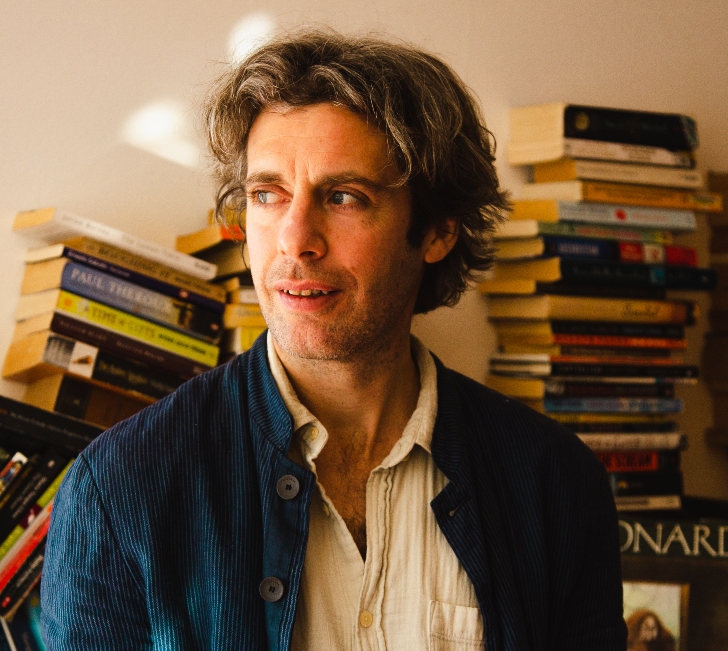
It the mountain village of Singulus it was considered extremly bad manners to ever speak to anyone. In Singulus, a person was valued by how much they knew and to tell someone anything was to imply that you knew more than they did. A mortal insult. It was permissable to ask someone something but that would be to admit they knew something you didn’t.
In fact, no one in the village has said anything to anyone else for over 20 years until old Ilse, in her dementia, absent-mindedly wished her neighbour ‘good morning’. The nieghbour concerned, understandably furious at the suggestion that he didn’t know it was a good morning, retorted that she was ‘a senile old bat’ and her family should keep her locked up. Ilse’s family were outraged (and embarrassed that they had forgotten to lock their grandmother up that morning) and began to throw a barrage of dictionaries and encyclopedias at their neighbour whose faimly replied in kind. When the last page had fluttered to the ground both families found themselves homeless. In Singulus, all of the houses were built using books as bricks to demonstrate that they had learned everything the books had to offer and were now only useful to make walls.
Fortunately the opportunities for such tragic onflicts were few and far between as it was rare for anyone in Singulus to leave their homes at all:; the result of an arms race a few years before when the villagers began to wear bigger and bigger glasses to prove they read more than their neighbours. The glasses got so big their owners could no longer fit through their doors and so remained home to study and left their windows open to prove it.
To the visitor, a wandering holy man, Singulus appeared to be a sleepy, peaceful village but as he walked the streets he found the air to be full of the agitated, nervous turning of pages. The wanderer, wearing a simple red robe and his beard down to his waist and carrying an old walking stick, paused before one of the houses and asked if he might take shelter for the night.
‘This isn’t a hotel.’
‘Perhaps I might have a piece of bread?’
‘This isn’t a bakery.’
‘A glass of water then?’
‘This isn’t a well.’
Agile as a goat, the holy man leapt right up through the window and to everyone’s astonishment, took a big shit in the middle of the carpet.
‘What the hell are you doing?’ the occupants cried, forgetting themselves.
‘As this is not a hotel, bakery or a well, I presumed it could only be a toilet.’ the wandered replied calmly.
The family at once attacked him from all sides, slamming his ears and nose between the heavy pages of old books and as he stumbled backwards out of the window the rest of the village lost no time in joining the assault, scholarly tomes and thesauruses at him, so that he barely escaped with his life. Reaching the safety of the hill above the village the wanderer turned and growled:
‘Alright, you want to know everything? Then so be it!’
True to his word, the wanderer returned to the village in the time it took him to walk to Egypt and back. He arrived early one morning and set down an object covered in cloth in the main square. Then he turned and walked out of the village forever.The astonishment of the villagers that the wanderer had dared to return was gradually offset by the curiosity to know what he had left behind. Everyone crowded into the square and watched apprehenseively while Finn the Elder, whose beard touched his toes, stepped forwards to gngerly unveil a cage in which there sat a large, hairless cat, lickiing its paws and its pointed ears twitching.
‘Why the devil did he leave a pussy cat here?’ he cried out in surprise and then blushed deeply at the shame of having been heard to ask a question in public.
‘To teach you a good lesson, I expect,’ the cat said with a yawn.
The wonder provoked by the sight of a talking cat made the crowd forget themselves and they unleashed such a flurry of questions that the cat had to raise a paw in protest.
‘One at a time if you woud so so kind. Yes, I can talk and understand all that you’re saying. I am a cat from Egypt known as a sphinx and I was brought here to answer your questions.’
‘What kind of questions?’ a young boy wanted to know.
‘Any question at all. I know all there is to know. That provoked gasps of awe. It seemed like a dream come true! But some, in particular the elders, coughed suspiciously.
‘Tell us then, if you can, why the sky is blue!’ Finn the Elder declared, stroking his beard.
‘Because, of course, we live inside the eyeball of a bue-eyed giant,’ the Sphinx simpered, and with that the last remaining doubts evaporated. The questions then came thick and fast.
‘Is the moon made of cheese?’
‘Yes, and a particularly smelly kind.’
‘Are there really gods above us?’
‘Yes, but they’re generally drunk.’
‘Are the ghosts of the dead here with us?’
‘Yes, but they can’t see a thing as their eyes have rotted away.’
But when Huzza the baker asked if his pregnant wife would give him a son or a daughter the Sphinx smirked and replied:
‘She will give birth to a son. But you’re dreaming if you think you’re the father, my dear chap.’
As Huzza chased his wife through the streets with a stick, the Sphinx lay down to take a nap and a silence fell as the significance of being able t know the answer to every question sunk in. For it occurred to everyone that the questions they really wanted to know the answers to were the ones that they could only ask in secret. And so a peculiar dance began of doors opening and closing all night in the village as people sneaked out one by one to ask the Sphinx their questions before hurrying away the moment they heard another door in the village open and close. The answers they received left them elated, anxious or mystified by they always hungered for more.
And what did they ask?
‘Who is the richest person in the village?’
‘How can i grow bigger muscles?’
‘What does Aleesh’s wife look like without her clothes on?’
The Sphinx slept all day and answered their questions all night but though no one brought it so much as a glass of milk, they noticed that it seemed to be getting bigger – well, fatter anyway. But no one thought to ask why.
Then Arden the stone mason asked a question that no one had thought of asking until now.
‘When…will I die?’
‘Tomorrow at midday,’ came the drawling answer, ‘and violently.’
Arden rushed home to grab his axe and marched up and down the streets of the village all night yelling: ‘I’d like to see the wretch who thinks they can kill me!’ He flexed his muscles and growled threats all night so that no one got any sleep.
As the sun rose the next morning the village gathered in the main square to see who would be the one to kill him. Arden marched about, his arms trembling a little under the weight of the axe, scanning all directions for a possible threat and challenging anyone who met his eye.
‘None of you would dare!’ he shouted hysterically, expecting an arrow or a club to the back of the head at any moment. The sun reached its zenith and relief and doubt crept into Arden’s mind in equal measure as he turned to face the Sphinx.
‘There! It’s noon and I’m still alive! Maybe you don’t know everything after all you lying ball of fur!’
The Sphinx merely sighed and then- in slow motion, by common account afterwards – it pushed the door of its cage open with a large paw and then sprang out, seizing Arden by the throat with a set of sharp teeth and dragging him to the ground. Only once the victim had stopped struggling and writhing did the Sphinx let go, roll over in the pool of blood and begin contorting and writhing itself; the crowd watched aghast as a hundred baby cats, each as hairless as their mother, squeezed out one by one, and then scurried over to curl up at the feet of each villager gathered.
‘Now you don’t have to sneak out in the night to as your secret questions,’ the Sphinx yawned.
The villagers were at once horrified at the murder of Arden and impressed that the Sphinx had predicted it so accurately, but they now felt a deep fear of the big cat and they were relieved to be able to take their own little Sphinx home with them. There were enough to go round that each person could have 2 or 3 with them at all times. For all their dread of the murderous Mother Sphinx, the villagers held the little kittens close to them wherever they went, and whispered in their pointy ears all their hopes and dreams. Young as they were, the baby Sphinxes listened attently and were able to answer all the questions put to them without hesitation.
They came to trust entirely in the little cats and when they were told it would rain the next day, everyone obediently stayed in their houses even though the sun shone bright and hot with not a cloud in the sky. And when the Sphinxes declared that the falling leaves from the trees made an excellent and nutritious snack, the villagers ate them greedily though they were hard to swallow and the taste was painfully bitter.
But with the fountain of knowledge in their arms, few people asked any of the big questions like why the sun turned red in the evening (it was impaled on the sharp mountain rocks and beld to death), but instead asked the little Sphinxes what was really on their minds: What was everyone else doing?
So it was the Sphinxes spent most of their time explaining just what the other villagers were doing, and saying in their most intimate moments. Pretty soon everyone knew just what the others were having for dinner, what dreams they had when they slept and what they looked like naked. They also discovered, of course, that everyone was asking the same questions as them and, conscious that their every thought, word and action was being heard and seen, they took care to not do, say or think anything that might harm their reputation.
And yet a doubt remained.
‘Look, don’t take this the wrong way…but how do we know that..you’re telling us the truth?’ they all eventually asked the little oracles fearfully, wondering at themselves that they dared ask such a question. But far from getting angry or springing at their throats, the Sphinxes nodded as though they had been expecting the question.
‘Would you like to see what we see, hear what we hear, know what we know?’ they asked.
Their owners trembled at the prospect of unlimited knowledge but they also felt certain that they were by now on an unstoppable path. It was too late to turn back now.
‘If only!’ they cried in response.
‘Simply wish for it and all the knowledge in the world shall be yours,’ the Sphinxes told them.
The villagers became aware of a gentle pressure on their skulls and found to their delight they could open their minds like pulling back a curtain and streams of images and voices flowed through their minds answering every question or mild curiosity they had. And yet once they knew all they longed to know the pictures and sounds kept on coming. It was though every answer gave birth to a hundred more questions and their heads began to throb painfully. In vain they tried to slow down and block out the flood of information that threatened to drown the little islands of their minds. In desperation they beat their heads against the walls, causing books to fall out and roofs to cave in. As they felt their minds begin to be torn apart by the merciless enslaught of information the villagers at last tore out their eyes with their fingers so they might no longer see all there was to be seen, and cut off their ears with kitchen knives so as to no longer hear the never-ending radio of the universe.
Mutilated and bleeding, they collapsed in relief as they disconnected from the infinite flow of information. Yet neither could they remember anything of all they’d heard and seen. Deaf and blind to the world, they called out in desperation to their Sphinxes to tell them how they could be made normal again. But the little cats, having breakfasted on the eyes and ears their hosts had thrown to the floor, had departed their houses and walked on down to the main square where their mother waited with open jaws. One by one they filed inside and as she swallowed the last of them, the Sphinx stepped back into her cage just as the holy man came walking down the hill to pick her up.
‘Well, that went faster than expected! Come on, it’s a long way back to Egypt. Do you think it will rain tonight?’
‘How should I know? I’m only a Sphinx.’







